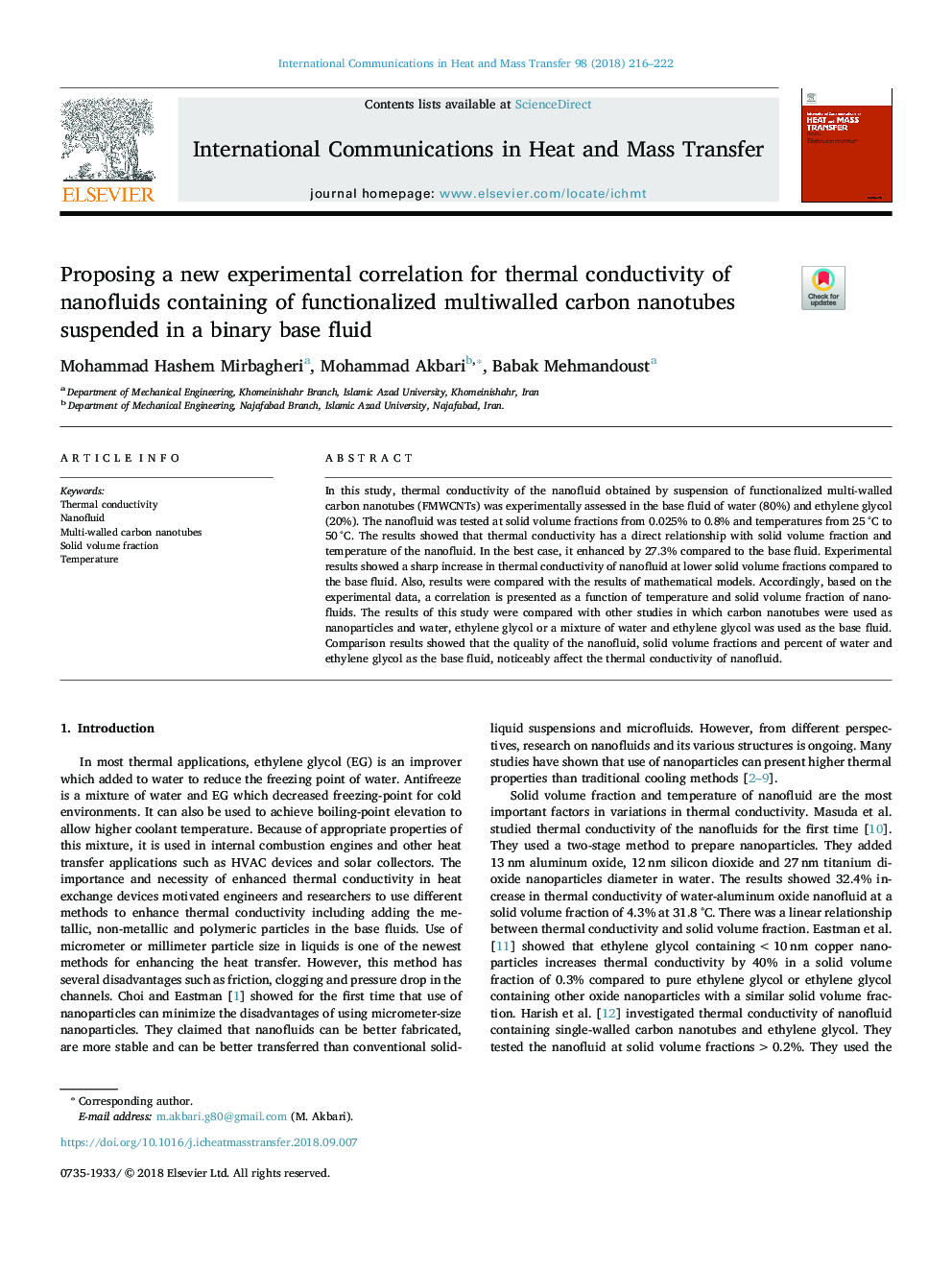| Article ID | Journal | Published Year | Pages | File Type |
|---|---|---|---|---|
| 11029987 | International Communications in Heat and Mass Transfer | 2018 | 7 Pages |
Abstract
In this study, thermal conductivity of the nanofluid obtained by suspension of functionalized multi-walled carbon nanotubes (FMWCNTs) was experimentally assessed in the base fluid of water (80%) and ethylene glycol (20%). The nanofluid was tested at solid volume fractions from 0.025% to 0.8% and temperatures from 25â¯Â°C to 50â¯Â°C. The results showed that thermal conductivity has a direct relationship with solid volume fraction and temperature of the nanofluid. In the best case, it enhanced by 27.3% compared to the base fluid. Experimental results showed a sharp increase in thermal conductivity of nanofluid at lower solid volume fractions compared to the base fluid. Also, results were compared with the results of mathematical models. Accordingly, based on the experimental data, a correlation is presented as a function of temperature and solid volume fraction of nanofluids. The results of this study were compared with other studies in which carbon nanotubes were used as nanoparticles and water, ethylene glycol or a mixture of water and ethylene glycol was used as the base fluid. Comparison results showed that the quality of the nanofluid, solid volume fractions and percent of water and ethylene glycol as the base fluid, noticeably affect the thermal conductivity of nanofluid.
Keywords
Related Topics
Physical Sciences and Engineering
Chemical Engineering
Fluid Flow and Transfer Processes
Authors
Mohammad Hashem Mirbagheri, Mohammad Akbari, Babak Mehmandoust,
